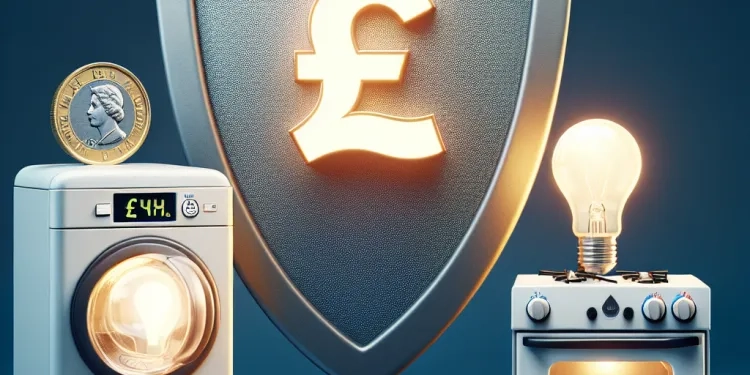
Find Help
More Items From Ergsy search
-

Does the energy price cap guarantee my total bill?
Relevance: 100%
-

How does the energy price cap affect my energy bills?
Relevance: 83%
-

What is the UK's energy price cap?
Relevance: 80%
-

What is the energy price cap?
Relevance: 79%
-

What is the Energy Price Cap in the UK?
Relevance: 78%
-
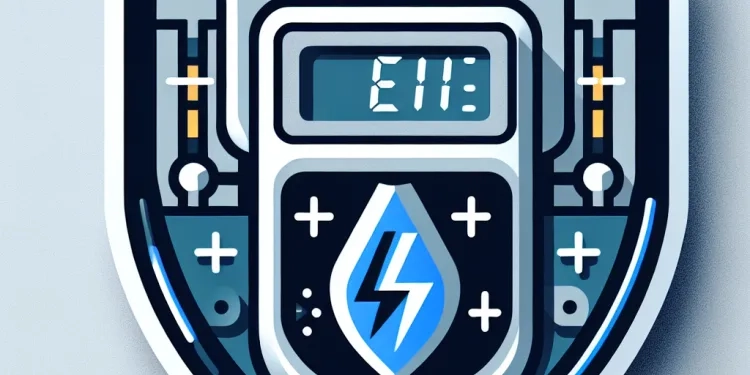
Does the energy price cap apply to all energy tariffs?
Relevance: 70%
-
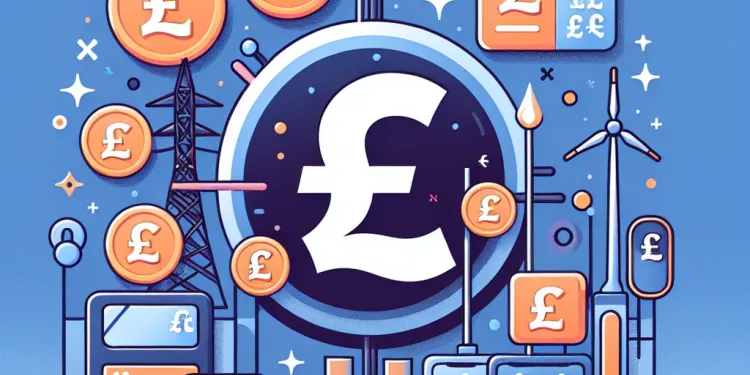
Why was the energy price cap introduced?
Relevance: 70%
-

When was the energy price cap introduced?
Relevance: 69%
-
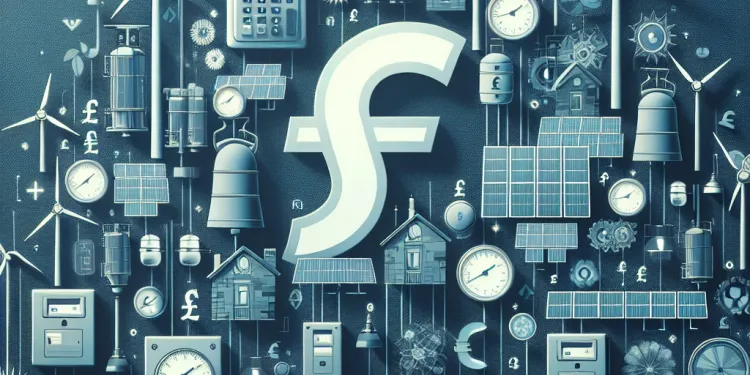
How is the energy price cap calculated?
Relevance: 69%
-

Can the energy price cap go down as well as up?
Relevance: 68%
-

Is the energy price cap the same for everyone?
Relevance: 68%
-
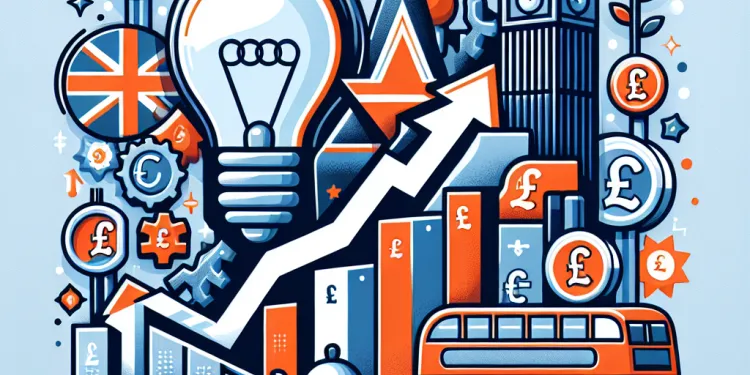
Is the energy price cap being reviewed due to market changes?
Relevance: 67%
-

Does the energy price cap apply to prepayment meters?
Relevance: 66%
-
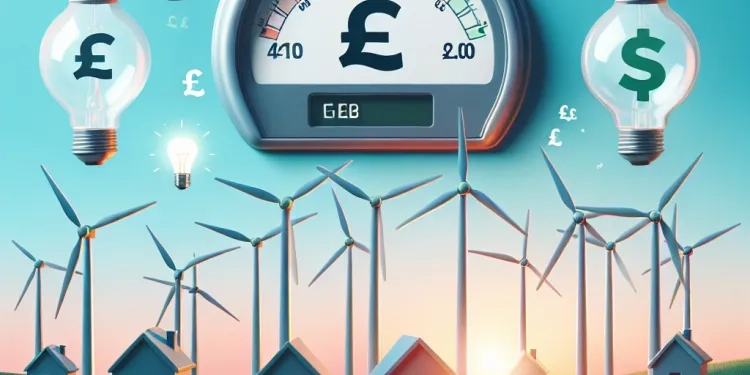
How often is the energy price cap reviewed?
Relevance: 66%
-

What factors influence changes to the energy price cap?
Relevance: 64%
-
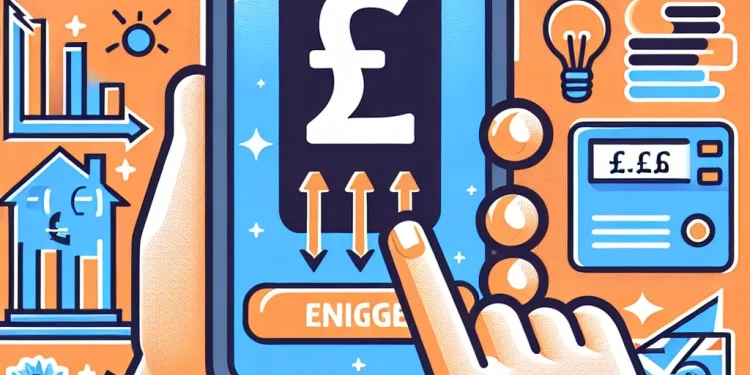
What happens if my energy supplier charges above the price cap?
Relevance: 63%
-

Where can I find more information about the energy price cap?
Relevance: 63%
-

Can energy suppliers charge less than the price cap?
Relevance: 62%
-

How does the energy price cap affect green energy tariffs?
Relevance: 60%
-
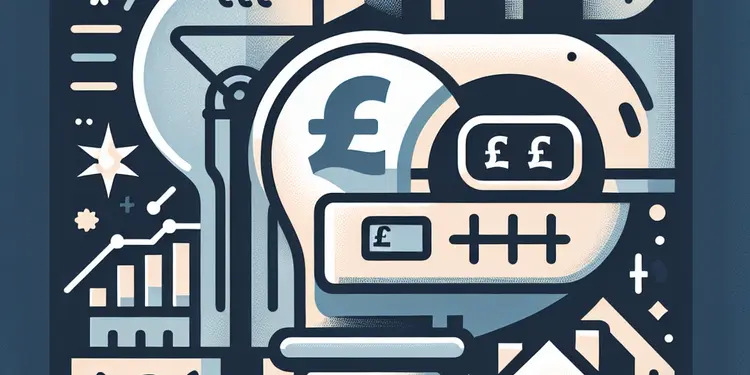
Are energy prices regulated in the UK?
Relevance: 58%
-

When will energy bills come back down in the UK?
Relevance: 55%
-

Who sets the energy price cap?
Relevance: 53%
-
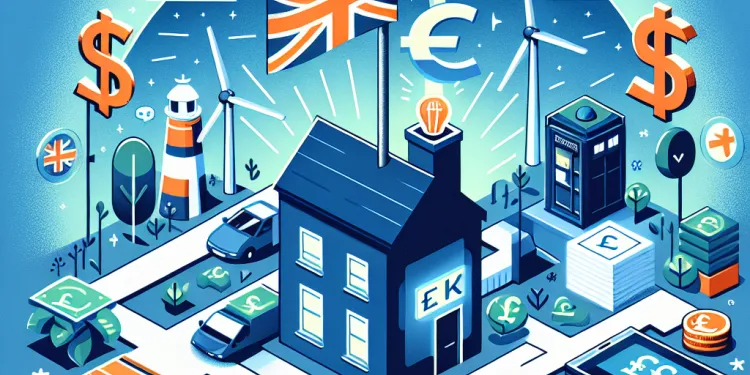
Can I still save money by switching suppliers if the price cap is in place?
Relevance: 52%
-
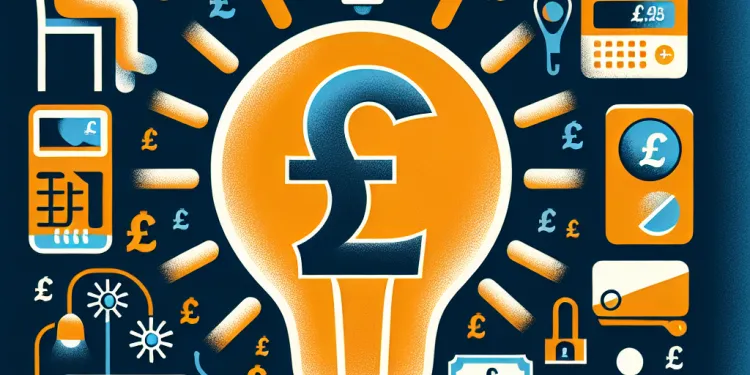
Energy Prices Set to Rise: How to Keep Your Bills Down
Relevance: 49%
-

When was the last significant decrease in UK energy prices?
Relevance: 49%
-

UK Government Announces New Energy Bill Support Amid Rising Costs
Relevance: 45%
-
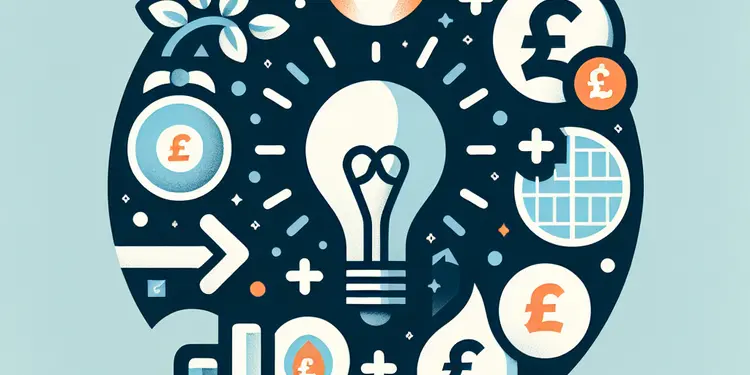
What factors influence the rise and fall of energy bills in the UK?
Relevance: 45%
-

How can government intervention affect energy prices?
Relevance: 43%
-
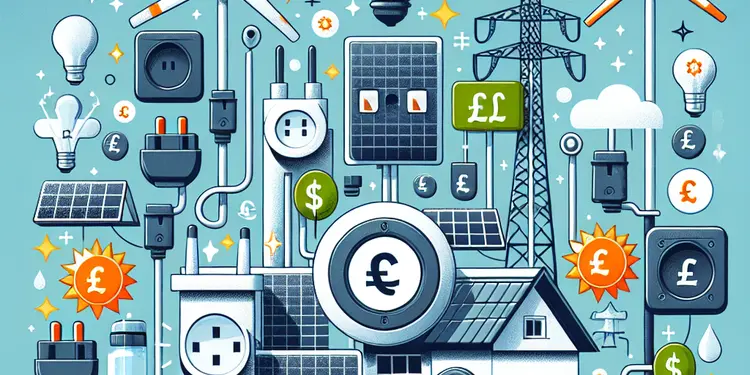
How often do energy companies review their electricity prices?
Relevance: 43%
-

Impact of Rising Energy Prices on Household Budgets
Relevance: 43%
-
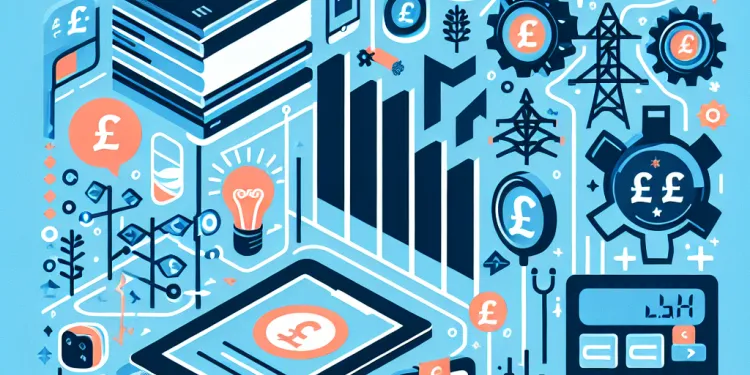
What should I do if my energy bill is unexpectedly high?
Relevance: 43%
-

How does global energy demand affect UK energy prices?
Relevance: 42%
-
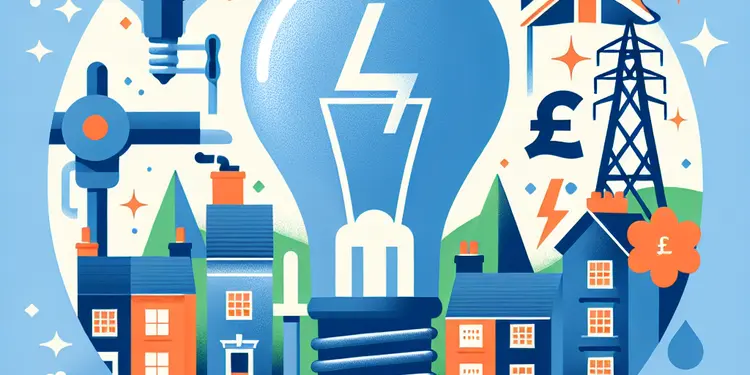
What factors influence the difference in electricity prices among UK energy companies?
Relevance: 41%
-
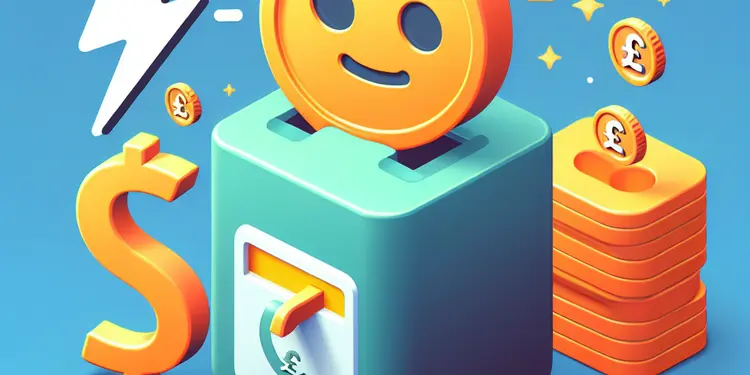
Do energy suppliers offer discounts on electricity prices?
Relevance: 40%
-
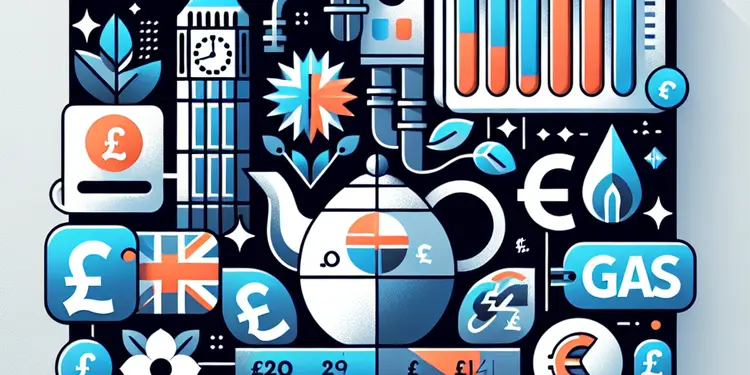
How can I compare prices among different energy suppliers?
Relevance: 40%
-

What role do renewable energy sources play in energy pricing?
Relevance: 40%
-

Have energy prices in the UK historically fluctuated?
Relevance: 39%
-
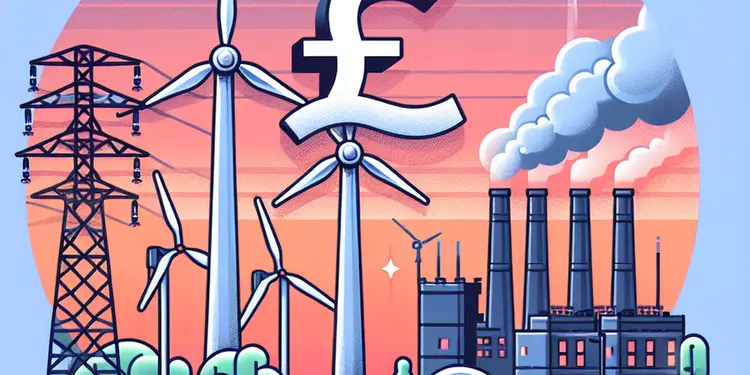
Do all UK energy companies cahrge the same for electricity
Relevance: 38%
-
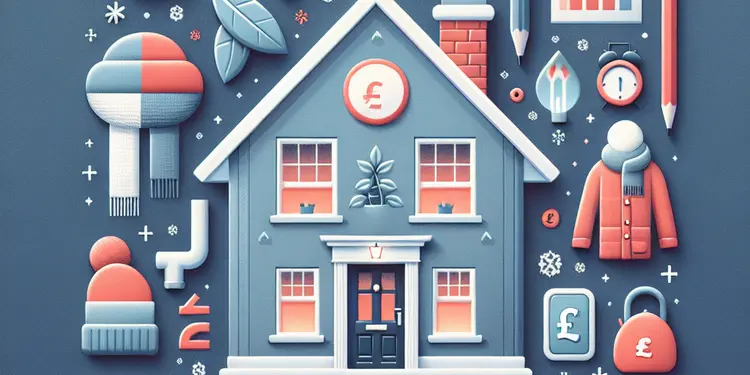
Can seniors receive help with their energy bills?
Relevance: 38%
-

Impact of Rising Energy Costs on Family Budgets
Relevance: 35%
Understanding the Energy Price Cap
The energy price cap is a mechanism implemented by the UK government to limit the amount that energy suppliers can charge consumers for each unit of gas and electricity. This cap is set by Ofgem, the UK's energy regulator, and is reviewed biannually. The main goal of the energy price cap is to protect consumers from excessive energy prices, ensuring that rates are fair and reflect the actual cost of supplying energy.
What the Energy Price Cap Covers
The energy price cap specifically limits the price per unit of energy and the daily standing charge that energy suppliers can impose. It is important to understand that the cap affects the 'variable' rates for energy usage, which means it does not apply to customers on fixed rate tariffs. The cap aims to provide a safety net for customers who are on default tariffs, also known as standard variable tariffs.
What the Energy Price Cap Does Not Guarantee
While the energy price cap controls the rates for units of energy and standing charges, it does not guarantee the total amount of your energy bill. This is because the actual bill a household receives depends on the amount of energy consumed. If a household uses more energy, their total bill will still be higher, even if the unit rates are capped.
Calculating Your Total Energy Bill
Your total energy bill is calculated by multiplying the number of units of energy you have used by the capped unit rate and then adding the daily standing charges for the billing period. Hence, while the price cap limits the costs per unit and standing charges, the overall bill can vary significantly based on your energy usage. High consumption will naturally lead to higher bills, which is not mitigated by the price cap.
Implications for Energy Consumers
Consumers should be aware that while the energy price cap can prevent sudden surges in energy costs, it is not a tool for reducing energy bills outright. Efficient energy usage and conservation remain vital in managing overall costs. Households should consider implementing energy-saving measures such as better insulation, using energy-efficient appliances, and monitoring energy usage to keep bills manageable.
Conclusion
In summary, the energy price cap offers protection against excessively high unit rates on variable tariffs but does not provide a predetermined total bill for energy users. Consumers must remain vigilant of their consumption patterns and take steps to lower usage where possible. By understanding both the benefits and limitations of the energy price cap, UK households can better plan and budget for their energy expenses.
Understanding the Energy Price Cap
The energy price cap is a rule made by the UK government. It stops energy companies from charging too much for gas and electricity. Ofgem, the UK's energy boss, sets this cap. They check it twice a year. The cap's job is to keep energy prices fair and not too high.
What the Energy Price Cap Covers
The energy price cap limits how much companies can charge for each energy unit and a daily fee. It covers "variable" rates, not fixed ones. This cap helps people on default tariffs, which can change prices.
What the Energy Price Cap Does Not Guarantee
The energy price cap limits unit rates and daily fees but not your whole bill. Your bill depends on the energy you use. Use more energy, pay more, even with capped rates.
Calculating Your Total Energy Bill
To find out your bill, multiply your energy units by the capped rate. Add the daily fees. Your bill changes with how much energy you use. Using more means paying more, cap or no cap.
Implications for Energy Consumers
The energy price cap stops prices from going too high suddenly. But it doesn't lower the bill by itself. Use energy wisely to keep costs down. Try saving energy by insulating homes, using efficient appliances, and watching how much energy you use.
Conclusion
The energy price cap helps keep unit prices fair but doesn't decide your total bill. Watch your energy use. Plan and manage your energy spending. Understand both the help and limits of the cap to budget better for energy.
Frequently Asked Questions
What is the energy price cap?
The energy price cap is a limit set by the regulator on the price suppliers can charge for each unit of gas and electricity.
Does the energy price cap affect my total bill?
The price cap does not directly cap your total bill, but it limits the rates per unit of energy. Your total bill depends on your energy consumption.
Will my energy bills always be the same under the price cap?
No, your bills will vary based on how much energy you use.
Can my energy supplier charge more than the price cap?
No, energy suppliers cannot charge more per unit of energy than the set price cap, but your total bill can be higher due to high usage.
Does the price cap cover all energy tariffs?
The price cap generally applies to standard and default variable tariffs, not fixed-rate tariffs.
How often is the energy price cap reviewed?
The energy price cap is typically reviewed twice a year.
Is the standing charge included in the price cap?
Yes, the standing charge, which is a fixed daily charge, is included under the price cap.
How can I reduce my energy bill under the price cap?
To lower your bill, reduce your energy usage and consider energy efficiency improvements.
What happens if my supplier charges above the cap?
Contact your supplier. If unresolved, report the issue to the energy regulator.
Does the price cap ensure my bills won't increase?
The price cap controls unit prices, but if usage increases, your bill may still rise.
Are prepayment meters covered by the price cap?
Yes, there is a separate cap for prepayment meter tariffs.
Can switching suppliers help lower my energy bill?
Yes, you might find lower rates or discounts by switching, but ensure you understand the terms.
Is the price cap the same across all regions?
No, regional variations exist due to differing distribution costs.
What units are covered by the price cap?
The price cap limits the cost per kilowatt-hour (kWh) of electricity and gas.
Why were energy price caps introduced?
Price caps were introduced to protect consumers from unfair price hikes.
Will the price cap apply to newly opened accounts immediately?
Yes, it will apply to any standard variable tariffs associated with new accounts.
Does my usage pattern affect the benefits from the price cap?
Yes, high usage means higher bills; managing consumption is key to savings.
Are business energy tariffs subject to the price cap?
No, the price cap does not apply to business or commercial tariffs.
What should I do if my supplier goes out of business?
You'll be transferred to a new supplier designated by the regulator, safeguarding against any price cap breaches.
How do I know if my current tariff is impacted by the price cap?
Consult your energy bill details or contact your supplier to confirm if your tariff is capped.
What is the energy price cap?
The energy price cap is a limit on how much you pay for energy. It stops companies from charging too much for gas and electricity.
It helps make sure your bills stay fair.
If you need help with reading, you can ask a friend or family to explain. You can also use tools that read the text out loud for you.
The energy price cap is a rule. It stops companies from charging too much money for gas and electricity.
Will the energy price cap change my total bill?
The price cap does not set a limit on your whole bill. It only limits how much you pay for each unit of energy. Your total bill depends on how much energy you use.
If you need help, try using a calculator to add up your energy costs. You can also ask someone you trust to explain your energy bill to you.
Will my energy bills always be the same with the price cap?
No, your energy bills might not always be the same even with a price cap. The price cap sets the highest amount you can be charged for energy, but your bill can still change.
Things to remember:
- The price cap limits how much energy companies can charge you per unit of energy.
- If you use more energy, your bill will go up.
- If you use less energy, your bill will go down.
Here are some tips to manage your energy use:
- Turn off lights when you leave a room.
- Unplug electronics when not in use.
- Wear warm clothes instead of turning up the heating.
Using tools like energy monitors can help you see how much energy you use.
No, your bills will change depending on how much energy you use.
Can my energy company ask for more money than the price limit?
No, energy companies can't charge more than the set price cap for each unit of energy. But if you use a lot of energy, your total bill can still be high.
Does the price cap include all energy prices?
The price cap is a rule that limits how much you pay for energy. It does not include all energy prices.
Some energy prices might be cheaper or more expensive.
If you want to know more, you can:
- Ask someone who knows about energy prices.
- Use simple online tools to compare prices.
- Talk to your energy provider for help.
The price cap is about how much you pay for energy. It usually works with standard and default variable tariffs. It does not work with fixed-rate tariffs.
How often do they check the energy price limit?
The energy price cap is checked two times each year.
Is the standing charge part of the price limit?
A standing charge is a cost you pay every day. It is for using gas or electricity even if you do not use any. The price limit is the most money you should pay for energy.
So yes, the standing charge is part of the price limit.
Reading tools can help you understand better. You can ask someone to read with you or use a text-to-speech app to listen.
Yes, the standing charge is money you pay every day. It is part of the price limit.
How can I make my energy bill smaller under the price limit?
To make your bill smaller, use less energy and think about ways to use energy better.
What if my supplier wants too much money?
Talk to the company that gives you energy. If they do not help, tell the energy boss about the problem.
Will the price cap stop my bills from going up?
The price cap helps keep energy prices from getting too high. But it does not mean your bills will never go up.
Here’s how it works:
- The price cap sets a limit on the cost of each unit of energy.
- It doesn’t cap your total bill. If you use more energy, your bill can still get higher.
What you can do:
- Try to use less energy. Turn off lights when not needed.
- Look for better deals from other energy companies. Sometimes switching helps save money.
- Use a budgeting tool to help plan your spending.
If you need help, ask someone or use online tools. They can make things easier to understand.
The price cap keeps the cost of each unit the same, but if you use more energy, your bill might get bigger.
Do prepayment meters have a price limit?
Yes, there is a limit for the amounts you pay with a prepayment meter.
Can changing my energy company help me save money?
Yes, you might find lower prices or special offers if you switch. Make sure you know what the rules are.
Is the price limit the same everywhere?
A price limit is the most money you have to pay for something.
Does everyone pay the same price limit no matter where they live?
Using pictures or a map can help you understand better.
No, prices are different in different places because it costs different amounts to get the product there.
What does the price cap cover?
The price cap is the most money you can be charged.
It includes things like gas and electricity. This means you won't pay too much for them.
If you need help understanding, you can ask someone or use a picture or chart.
The price cap helps keep the cost of electricity and gas down. It sets a limit on how much each unit of electricity and gas can cost.
Why Did We Get Energy Price Caps?
Energy price caps were made to help people. They keep energy costs from getting too high. This helps families pay their bills.
Here are some ways to understand better:
- Use simple words or pictures to explain energy caps.
- Ask someone to help if you have questions.
- Use apps or tools that read text aloud.
Price caps help stop prices from going up too much. This keeps things fair for everyone who buys stuff.
Does the price limit start right away for new accounts?
This question is about whether new accounts get the same price limit as older ones right from the start. If you're not sure, you can ask someone for help or use online tools that explain these things in simple words, like online dictionaries or apps.
Yes, it will work with any normal price plans for new accounts.
Does how I use energy change how I save money with the price cap?
The way you use energy can change how much money you save with the price cap.
Here are some tips to help you understand better:
- Use pictures to show how much energy things use. Pictures can help you see what uses lots of energy at home.
- Try to use energy when it costs less. Ask someone to help find out when it is cheaper.
- Use a smart meter if you have one. It can show you how much energy you use.
Using a lot of energy means you will have bigger bills. To save money, use less energy. Smart ways to do this can help.
Do business energy rates have a limit?
This means: Is there a top price for how much businesses pay for energy?
Help and tips:
- Ask someone to explain if needed.
- Use apps that read text out loud.
- Look for simple guides about energy prices.
No, the price limit does not cover business or company bills.
What can I do if the company I buy from closes down?
If the company I buy things from closes down, I can try these steps:
- Look for news about the company online. This can tell me if they have closed for good.
- If I can, talk to someone at the company. They might give me more information.
- Check if I have a contract or a receipt. It helps to know this.
- Think about other companies I can buy from.
- Ask someone I trust for advice. This could be a friend or family member.
There are also helpful things I can use, like:
- Call a helpline for advice. They can help me know what to do.
- Use pictures or videos to help understand what's happening.
- Ask for help to read complicated words or papers.
You will get a new supplier. The regulator will choose this new supplier to make sure prices stay fair.
How can I tell if my price plan is affected by the price cap?
Look at your energy bill or call your energy company to check if your price is limited.
Useful Links
This website offers general information and is not a substitute for professional advice.
Always seek guidance from qualified professionals.
If you have any medical concerns or need urgent help, contact a healthcare professional or emergency services immediately.
Some of this content was generated with AI assistance. We’ve done our best to keep it accurate, helpful, and human-friendly.
- Ergsy carfully checks the information in the videos we provide here.
- Videos shown by Youtube after a video has completed, have NOT been reviewed by ERGSY.
- To view, click the arrow in centre of video.
- Most of the videos you find here will have subtitles and/or closed captions available.
- You may need to turn these on, and choose your preferred language.
- Go to the video you'd like to watch.
- If closed captions (CC) are available, settings will be visible on the bottom right of the video player.
- To turn on Captions, click settings .
- To turn off Captions, click settings again.
More Items From Ergsy search
-

Does the energy price cap guarantee my total bill?
Relevance: 100%
-

How does the energy price cap affect my energy bills?
Relevance: 83%
-

What is the UK's energy price cap?
Relevance: 80%
-

What is the energy price cap?
Relevance: 79%
-

What is the Energy Price Cap in the UK?
Relevance: 78%
-

Does the energy price cap apply to all energy tariffs?
Relevance: 70%
-

Why was the energy price cap introduced?
Relevance: 70%
-

When was the energy price cap introduced?
Relevance: 69%
-

How is the energy price cap calculated?
Relevance: 69%
-

Can the energy price cap go down as well as up?
Relevance: 68%
-

Is the energy price cap the same for everyone?
Relevance: 68%
-

Is the energy price cap being reviewed due to market changes?
Relevance: 67%
-

Does the energy price cap apply to prepayment meters?
Relevance: 66%
-

How often is the energy price cap reviewed?
Relevance: 66%
-

What factors influence changes to the energy price cap?
Relevance: 64%
-

What happens if my energy supplier charges above the price cap?
Relevance: 63%
-

Where can I find more information about the energy price cap?
Relevance: 63%
-

Can energy suppliers charge less than the price cap?
Relevance: 62%
-

How does the energy price cap affect green energy tariffs?
Relevance: 60%
-

Are energy prices regulated in the UK?
Relevance: 58%
-

When will energy bills come back down in the UK?
Relevance: 55%
-

Who sets the energy price cap?
Relevance: 53%
-

Can I still save money by switching suppliers if the price cap is in place?
Relevance: 52%
-

Energy Prices Set to Rise: How to Keep Your Bills Down
Relevance: 49%
-

When was the last significant decrease in UK energy prices?
Relevance: 49%
-

UK Government Announces New Energy Bill Support Amid Rising Costs
Relevance: 45%
-

What factors influence the rise and fall of energy bills in the UK?
Relevance: 45%
-

How can government intervention affect energy prices?
Relevance: 43%
-

How often do energy companies review their electricity prices?
Relevance: 43%
-

Impact of Rising Energy Prices on Household Budgets
Relevance: 43%
-

What should I do if my energy bill is unexpectedly high?
Relevance: 43%
-

How does global energy demand affect UK energy prices?
Relevance: 42%
-

What factors influence the difference in electricity prices among UK energy companies?
Relevance: 41%
-

Do energy suppliers offer discounts on electricity prices?
Relevance: 40%
-

How can I compare prices among different energy suppliers?
Relevance: 40%
-

What role do renewable energy sources play in energy pricing?
Relevance: 40%
-

Have energy prices in the UK historically fluctuated?
Relevance: 39%
-

Do all UK energy companies cahrge the same for electricity
Relevance: 38%
-

Can seniors receive help with their energy bills?
Relevance: 38%
-

Impact of Rising Energy Costs on Family Budgets
Relevance: 35%


